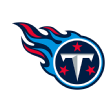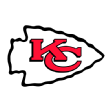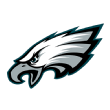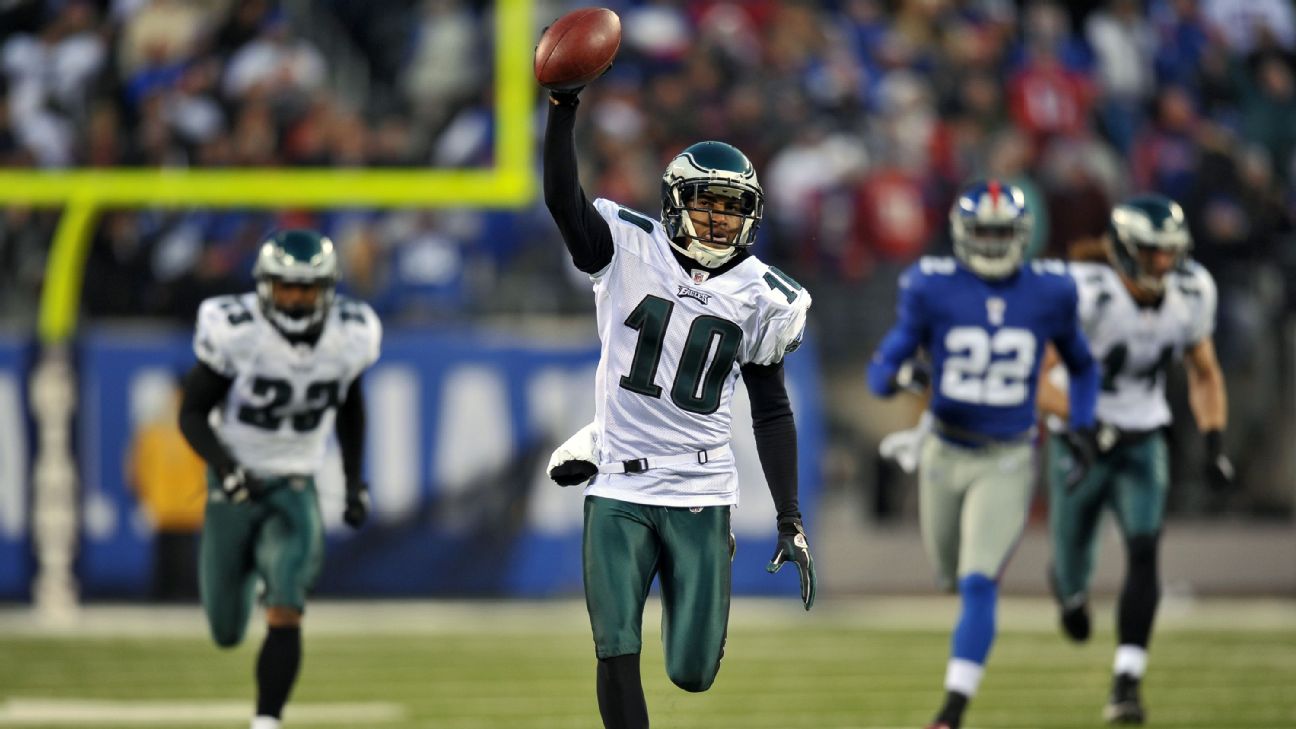Predicting roster turnover for all 12 NFL playoff teams: Which players could move

Roster turnover is a fact of life in the NFL. In a league in which many players don't have guaranteed money due in the upcoming season and somewhere between five and eight organizations typically swap out their football personnel each offseason, just about every player is on a short leash. Even the league's banner franchises inevitably deal with changes quicker than expected; who could have imagined this time last year that there would be serious debate about whether Tom Brady would be back with the Patriots in 2020?
Let's run through the 12 playoff teams and see how their rosters are likely to change in 2020. This will be less about the players they might consider adding and more about their pending free agents and possible salary-cap casualties. I won't mention every single free agent-to-be, but I will get to the key players and address what might come into play as they try to negotiate new deals. You'll see those free agents in bold below.All the salary and free-agent data is sourced from Spotrac.
Let's begin with the eliminated teams in the AFC and go from there:
AFC:
BAL | KC | NE
HOU | BUF | TEN
NFC:
SF | GB | NO
PHI | SEA | MIN
AFC
Buffalo Bills(10-6)
Projected cap space: $89 million (4th in NFL)
The Bills are well-positioned to retain any pending free agents they want. And after rebuilding the roster with free agents on both sides of the ball over the past two offseasons, general manager Brandon Beane is likely to use some of that money to keep around contributors to Buffalo's second playoff team in three years.
The most notable name on the list is breakout defensive tackle Jordan Phillips, who bet on himself by signing a one-year, $4.5 million deal in March to stay with the Bills. He responded with his best season as a pro, racking up 9.5 sacks and 16 knockdowns to go along with 13 tackles for loss. The only defensive tackle with more tackles for loss was Aaron Donald, and when you're second in a category behind the Rams star, you're doing something right.
What is interesting here for the Bills is that they already are heavily invested elsewhere at defensive tackle, given that Star Lotulelei is entering Year 3 of a five-year, $50 million pact, while their first-round pick in the 2019 draft was University of Houston star Ed Oliver. The Bills like to rotate their tackles, so there is enough space in the rotation to get snaps for Lotulelei, Oliver and Phillips, but few teams in the league would have more invested on the interior if Buffalo does re-sign Phillips.
Unsurprisingly, given how he has shed the roster of players from the previous administration, Beane declined defensive endShaq Lawson's fifth-year option last offseason. I suspect the Bills thought Lawson would finish out his rookie deal and move on, but the Clemson product picked up 6.5 sacks and 18 knockdowns while playing 47% of the defensive snaps. He also is a solid defender against the run, and while he probably won't get a massive contract in free agency, it would hardly be shocking to see him earn something in the range of $9 million per year. Given that the Bills didn't see Lawson at that level heading into 2019, it remains to be seen whether they would make that sort of commitment on a multiyear pact.
Guard Quinton Spain also is a free agent after signing a one-year deal; his future might depend on what the team wants to do with rookie second-round pickCody Ford, who struggled at times as the right tackle. If the Bills want to switch Ford inside, they could pursue someone like former Panthers tackle Daryl Williams to play that position and move on from Spain.
Players such as running backFrank Gore and cornerKevin Johnson also are free agents, while Lorenzo Alexander retired after the playoff loss to the Texans. The Bills could pursue a strong-side linebacker to replace Alexander, who was wildly underrated during the second half of his career. Flush with cap space, Buffalo is unlikely to release any notable players to create room this offseason.
New England Patriots(12-4)
Projected cap space: $42 million (19th in NFL)
Of course, the biggest looming free agent for the Patriots is the greatest player in team history. Tom Brady's contract voids after the season, and the Pats are contractually prevented from franchising their star quarterback. The "extension" the team handed Brady in August was really a raise with two voidable years added to the deal for cap purposes. If Brady retires or leaves for another team this offseason, New England will be stuck with $13.5 million in dead money on their 2020 cap for the future Hall of Famer.
If the Patriots re-sign Brady before the opening day of free agency, they don't have to worry about the dead money. There are plenty of reasons to believe that a reunion between Brady and the only team he has ever played for makes sense for both sides, but the Pats would already have more than $21 million in dead money on their cap before pursuing a new quarterback this offseason if Brady moves on. They shouldn't re-sign Brady solely to avoid the dead money, but in a free-agent market in which there are hardly any sure things, he is still comfortably the best quarterback option.
Brady isn't the only veteran the Patriots need to bring back. Safety Devin McCourty, 32, is a free agent after finishing the five-year, $47.5 million deal he signed in March 2015, and while he flirted with retirement last offseason, he already has said he expects to keep playing in 2020. McCourty played at a Pro Bowl level this season, so he won't lack for suitors if the Pats don't pay up. New England let him hit free agency before re-signing him in 2015, and it wouldn't be a shock if the same thing happened again here.
Keeping together the league's No. 1 defense will be tough. Linebackers Kyle Van Noy and Jamie Collins and run-plugging defensive tackle Danny Shelton are all free agents and are likely due raises that would price them out of New England's viable price range. Collins will be the most compelling case after reviving his career while on a one-year, $2 million pact with the Pats. After a disastrous stint with the Browns, will he take less money to stay with Bill Belichick in New England?
On the offensive side, concerns after Brady aren't quite as pressing, although starting guard Joe Thuney and third wideout Phillip Dorsett are free agents. Thuney seems likely to leave, given the Patriots already have locked up fellow guard Shaq Mason and have a history of otherwise avoiding market value for guards. Backup interior linemen Ted Karras and James Ferentz also are unrestricted free agents, although the team could re-sign one of them and promote him into the starting guard spot vacated by Thuney.
There aren't many likely cap casualties on the Pats' roster. One could be longtime kicker Stephen Gostkowski, who will enter the offseason recovering from hip surgery after an ugly start to 2019. Cutting Gostkowski would free up just under $3.5 million. Backup running backs Rex Burkhead ($2.9 million saved by a release) and Brandon Bolden ($1.5 million) also could be targeted if Belichick thinks third-round pick Damien Harris can fill one of their roles. Cutting wide receiverMohamed Sanu would free up $6.5 million, but even after a disappointing Pats debut, I can't imagine Belichick would give up on the 30-year-old just months after trading a second-round pick to acquire him.
Tennessee Titans(9-7)
Projected cap space: $57 million (13th in NFL)
The three most prominent authors of Tennessee's wild-card victory over New England are all unrestricted free agents, though it wouldn't be shocking to see each return to Nashville for 2020. QuarterbackRyan Tannehill, running backDerrick Henryand cornerbackLogan Ryan are each in the final year of their respective deals, and their chances of returning are likely intertwined. With teams able to use both the franchise and transition tags in 2020, Titans general manager Jon Robinson can easily keep around two of this group.
Tannehill seems like an obvious candidate for the franchise tag after excelling with the Titans this season. As good as he was after entering the lineup, it also is fair to note that the former Dolphins starter has no track record of playing this well, and he has a significant injury history. Franchising Tannehill would put him in a position to prove that 2019 wasn't a fluke while preventing any other team from making a serious run at the 31-year-old. The Titans also might negotiate a multiyear deal with him that includes an easy opt-out after Year 1, similar to the deals signed by Ryan Fitzpatrick and Tyrod Taylor in recent years.
Henry's negotiations are going to be difficult. As a power back with little involvement in the receiving game (one 75-yard screen pass aside), Henry profiles as the sort of back teams typically regret extending. It wasn't too long ago that Tennessee was shopping Henry as a trade candidate.
And yet, Henry led the league in both rushing yards and rushing touchdowns this season. He represented virtually the entire offense in the win over the Patriots, although the offense only put up 14 points. There are organizations that will use the Ravens' success in Baltimore as a pretense to focus on the running game, and if teams like the Chargers or Washington change their offense, it could open up a viable landing point for Henry. I would imagine that he is worth more to the Titans than anybody else and vice versa, which would seem to point toward a transition tag, if not a full-blown extension.
Ryan's status might be up in the air, given that the Titans have a lot otherwise invested at cornerback in Malcolm Butler and former first-rounder Adoree' Jackson. Neither has been consistent, which might make Ryan's case for returning stronger. Third contracts for cornerbacks are often dangerous propositions, but Ryan is just 28 years old, and he probably deserved to make the Pro Bowl roster ahead of Marcus Peters. If Ryan doesn't return, he should get something more than the three-year, $30 million pact he signed with the Titans during his previous foray into free agency.
Right tackle Jack Conklin is the other significant Titans free agent. Robinson declined Conklin's fifth-year option over concerns surrounding the former first-round pick's knee, with Conklin tearing his ACL in the 2017 playoffs and going back on injured reserve with knee issues in 2018. Conklin is unquestionably talented, but his All-Pro nod as a rookie required a scheme built to funnel help to him at right tackle. Unless the Titans have drastically changed how they feel about his medicals, you get the feeling they might let him hit the market this offseason.
I would expect the Titans to move on from linebackerWesley Woodyard and former second overall pick Marcus Mariota, who will look for a competitive quarterback job elsewhere. The obvious landing spot for the signal-caller disappeared when the Bears fired Mark Helfrich, Mariota's former coach at Oregon, and doubled down on their commitment to Mitchell Trubisky. But Mariota could be a fit with teams such as the Colts, Chargers and Panthers if they consider making quarterback changes this offseason.
If the Titans do keep Ryan, Butler could become a cap casualty after a disappointing first year and a second year marred by injury. Tennessee would free up $7.4 million by releasing the former Patriots corner, though there are other ways for the Titans to create cap space if necessary. They could instead choose to release a pair of legends who weren't able to stay healthy in 2019 in pass-rusher Cameron Wake and tight endDelanie Walker. Releasing the two stalwarts would create an additional $12 million in cap room. Adding running backDion Lewis to the discard pile would free an additional $4 million.
Houston Texans(10-6)
Projected cap space: $60 million (12th in NFL)
Some of this cap space will likely go toward an extension for star quarterback Deshaun Watson, who becomes eligible for a new deal this offseason. Watson's cap hit for 2020 is $4.4 million, but that would rise dramatically in the event of an extension. The going rate for a Watson deal will likely come in somewhere around four years and $140 million. Bill O'Brien already resolved a couple of his pending negotiations by signing Whitney Mercilus, Nick Martinand Bryan Anger to extensions in recent months.
The Texans will have plenty of turnover at cornerback this offseason. Bradley Roby, Johnathan Josephand Phillip Gaines are all free agents, while Vernon Hargreaves III is sure to be cut given his 2020 cap hold of $10 million. The Texans would otherwise start next season with Gareon Conley, Lonnie Johnson Jr.and Keion Crossen as their corners. A new deal for Roby, who has generally been good when healthy this season, would make sense.
O'Brien also will have tough decisions to make at wide receiver. The team picked up Will Fuller V's fifth-year option for $10.2 million, and it hasKenny Stills under contract for one more year at $7 million. Fuller is brilliant when he is on the field, and Watson's passer rating drops from 108.0 to 94.5 when Fuller isn't available, but the former first-round pick has now missed 22 of 64 games since entering the league. Fuller has suited up for just under 45% of Houston's available snaps over the past three seasons; can the Texans really justify paying him more than $10 million with that sort of availability as their baseline? And if they do, can they afford to commit $7 million to Stills as their third wideout?
If all that wasn't enough, the Texans have a few defenders coming free. D.J. Readerhasbecome one of the league's best nose tackles, and he should have a serious market, especially after upping his quarterback hit total to 13 this season. He is going to get a significant raise on his $2 million base salary from 2019. Brandon Dunn, who played in the defensive line rotation, also is an unrestricted free agent, as is safety Jahleel Addae.
The Texans stumbled into a starting running back when they acquired Carlos Hyde at the end of the preseason. Hyde delivered league-average running back performance at 4.4 yards per carry while finishing 13th in success rate. There is no reason for the team to make a meaningful outlay to Hyde when backs like this are available for cheap each offseason; Houston could instead pursue a one-year deal with Lamar Miller if their former starter is fully recovered from his torn ACL. Tight endDarren Fells and kickersKa'imi Fairbairn also are free agents.
There's a lot of work to be done here; good thing the Texans traded away their first-, third-, and sixth-round picks for the 2020 draft and don't have a general manager!
Kansas City Chiefs(12-4)
Projected cap space: $21.3 million (26th in NFL)
You can throw that projected figure out the window, because it is going to disappear quickly. The Chiefs are almost surely going to extend franchise quarterback Patrick Mahomes this offseason, and regardless of how they structure the deal, his $5.3 million cap hold for 2020 is going to rise. The 2018 MVP is going to sign the biggest contract in football; it's really just a question of whether he waits for Watson and Dak Prescott to sign their own deals before coming over the top.
The Chiefs also have another free agent coming due on the other side of the ball in stud defensive lineman Chris Jones, who has 24.5 sacks and 49 knockdowns in 29 games over the past two seasons. Jones ranks sixth in sacks and fifth in knockdowns over that time frame, with numbers in the ballpark of guys such asVon Miller and Cam Jordan. The Chiefs have let young defensive contributors such asDee Ford and Dontari Poe leave in recent years, and it is possible they franchise Jones in advance of a trade; but it is more likely Jones ends up getting the second massive extension the Chiefs hand out in 2020.
A number of cornerbacks also are coming free, as Bashaud Breeland, Morris Claiborneand Kendall Fuller are all free agents. Breeland could attract a new deal after reemerging as a starter, although the Chiefs have generally resisted spending significant money at corner in recent years. Wide receiver Demarcus Robinson also is likely to leave, given that Kansas City hasn't invested in its third wideout spot and it let both Albert Wilson and Chris Conley sign elsewhere in years past. Veteran imports LeSean McCoy and Terrell Suggs are likely to retire or chase championships on modest one-year deals.
General manager Brett Veach will probably want to clear out some cap space to re-sign his two young stars while adding a veteran or two. One obvious contract to target is that of Sammy Watkins, who hasn't lived up to the team's hopes after signing a three-year, $48 million deal. Watkins has missed eight games via injury, and he totaled 1,192 receiving yards across 24 regular-season games with Kansas City.
Watkins' cap hit for 2020 is an unrealistic $21 million, the largest for any wide receiver in football. The Chiefs will likely release him, which would instantly free up $14 million in cap space. If the former Bills first-rounder wants to stay in Kansas City, he will probably need to take a pay cut as part of a contract extension. Watkins is still only 26, so it wouldn't shock me if he was able to get a multiyear deal elsewhere.
Baltimore Ravens(14-2)
Projected cap space: $34.6 million (20th in NFL)
The Ravens are finally free after six years of Joe Flacco's bloated contract, but after signing cornerbackMarcus Peters to a three-year, $42 million extension, they don't have the sort of cap space we might typically associate with teams that are built around a quarterback on a rookie deal. Lamar Jackson will still be a bargain in 2020, but Baltimore isn't likely to make many major additions this offseason around its considerable core of talent.
After years of seeing Ravens draftees such asKelechi Osemele and Za'Darius Smith leave and excel elsewhere, they can instead use their room to retain their own. The key name is Matt Judon, who finally got the recognition he has deserved over the past couple of seasons by making his first Pro Bowl. Judon's 9.5 sacks look like a relatively modest total for a Pro Bowl outside linebacker, but the former fifth-round pick ranks fourth in the NFL with 33 quarterback knockdowns to go with seven tackles for loss and four forced fumbles. After losing Smith and seeing him blossom further with the Packers, the Ravens can't afford to let Judon follow his former teammate out the door. It wouldn't be shocking to see the Ravens use the franchise tag on the 28-year-old.
It will be tough for the Ravens to retain all of the regular contributors on their defense, which finished the regular season ranked fourth in defense-adjusted value over average (DVOA). Defensive lineman Michael Pierce does a lot of dirty work for the team up front while playing about half of the defensive snaps. After the Ravens handed Brandon Williams a five-year, $52.5 million deal, though, I wonder whether they will want to devote another significant contract to a defensive lineman.
The secondaryalso is probably going to undergo changes, with cornersJimmy Smith a free agent and Brandon Carr on a $6 million team option for 2020. The oft-injured Smith is 31, while Carr is 33. Both can be useful when healthy, and it wouldn't shock me if the team brought one of the two back, but the cornerback depth chart next season will start with Peters, Marlon Humphreyand slot corner Tavon Young, who has been on injured reserve with a neck injury.
One young player who seems to be on his way out of town is inside linebacker Patrick Onwuasor, who looked to be on the upswing after a promising 2018 campaign. Instead, after a slow start to the season, the Ravens signed veterans Josh Bynes and L.J. Fort and de-emphasized the fourth-year linebacker. Onwuasor played 95% of the snaps over the first five weeks of the season, but after returning from missing two games with an ankle injury, he has played just under 35% of defensive snaps. A frustrated Onwuasor stormed out of a December practice after arguing with John Harbaugh, and it seems likely his future will be elsewhere. Bynes also is a free agent.
General manager Eric DeCosta also can create some cap space, if necessary, by releasing safety Tony Jefferson, who suffered a serious knee injury in October. Moving on from the final year of Jefferson's deal would free up $7 million. Baltimore also is likely to negotiate an extension with left tackle Ronnie Stanley, whose fifth-year option has produced a cap hold of $12.9 million. The Ravens could reduce Stanley's cap hit with an extension, with the first-team All-Pro likely looking at a five-year, $90 million deal.
NFC
Philadelphia Eagles(9-7)
Projected cap space: $33.7 million (21st in NFL)
Howie Roseman is one of the league's most aggressive and creative general managers, and he is going to be busy this offseason. The secondary was Philly's biggest weakness in 2019, and the Eagles will need to rebuild it this offseason without a significant amount of cap room. The figure above does not include any new deals for defensive backsRonald Darby, Rodney McLeodnorJalen Mills, each of whom seems unlikely to return. SafetyMalcolm Jenkins also has said he won't return to the team on his current deal, which means the Eagles will need to either give Jenkins an extension or eat $6.1 million in dead money after moving on from their other starting safety.
The Eagles are generally a team built around the line of scrimmage, and Roseman will need to find more bargains to serve as depth along the defensive line with Vinny Curry, Tim Jerniganand Hassan Ridgeway all free agents. On the other side of the line, the Eagles are likely to replace 37-year-old franchise legend Jason Peters at left tackle with 2019 first-round pick Andre Dillard, although Peters has suggested he expects to keep playing in 2020. Utility lineman Halapoulivaati Vaitai is a free agent, as well, and will likely attract the sort of deal elsewhere that the Eagles will struggle to match.
The Eagles also will have to overhaul their depth at running back and wide receiver. BacksJordan Howard, Corey Clementand Darren Sproles are all free agents, although Clement is restricted. The organization has had a weak spot for Nelson Agholor, but when the Eagles let the former first-round pick play out his fifth-year option at $9.4 million, it turned into a blind one. The Eagles badly need to add speed behind the oft-injured DeSean Jackson, and I suspect their fourth wideout in 2020 will be someone who can threaten teams downfield.
With Carson Wentz suffering season-ending injuries in both 2017 and 2018, the Eagles also will place a priority on their backup quarterback spot. Both Nate Sudfeld and Josh McCown are free agents, and with a deep pool of borderline starters available, Philly might be able to add someone such asAndy Dalton or Marcus Mariota at a reasonable price. While everyone might want a reunion with Nick Foles, the former Super Bowl MVP's contract structure makes one exceedingly unlikely.
Finally, the Eagles will probably consider a change at linebacker, where Nigel Bradham has a team option for 2020 with an $8 million base salary. It is difficult to see the former Bills linebacker coming back at that figure. And backup Kamu Grugier-Hill also is a free agent.
New Orleans Saints(13-3)
Projected cap space: $4.8 million (28th in NFL)
The Saints' possible paths this offseason head in two very different directions, owing to the future of Drew Brees. Like Brady, Brees' contract will void after the season, with the Saints on the hook for $21.3 million in dead money on their 2020 cap. If Brees isn't on the roster by the first day of the new league year, the Saints will eat that penalty for years of saving money on his deal. (The figure above is calculated with that $21.3 million on the books.)
If Brees wants to come back, the Saints will likely hand him another multiyear deal that voids out into a one-year contract, which would save them from paying those dead-money charges. Given how the Saints' season ended and how productive Brees was when healthy, it seems likely that the Saints will re-sign their future Hall of Famer. Everything that follows presumes that Brees comes back for another year with Sean Payton & Co. in 2020.
Backup quarterback Teddy Bridgewater's future is up in the air. The league was only marginally interested in offering him starting jobs last offseason, but after going 5-0 as the fill-in starter for the Saints, Bridgewater proved he can still be the high-floor option we saw during his time with Minnesota. With as many as 11 starting quarterback jobs coming available and a strong 2020 draft class, there is a whole range of possibilities on the table for the former Louisville star. Bridgewater could end up as a starter on a multiyear deal elsewhere or end up re-signing with the Saints to serve as the backup and future starter behind Brees. My guess is that he gets a chance to start elsewhere in 2020, which would leave the Saints in the market for a backup.
The Saints have three other recent first-rounders coming due for unrestricted free agency, although linebackerStephone Anthony is strictly a special-teamer at this point. Both offensive linemanAndrus Peat and cornerbackEli Apple had disappointing 2019 seasons. Peat broke his arm in November, returned in Week 17 and was one of the biggest reasons the Saints were upset by the Vikings in the wild-card round last weekend. Apple, who was impressive at times after being traded to the Saints last season, didn't respond well after the team declined his fifth-year option during the offseason. He missed the Vikings loss with an ankle injury, and it wouldn't be a surprise if the team moved on from all three players after the season.
There are legitimate questions about what New Orleans will do in the secondary, especially if it uses this offseason to give superstar cornerback Marshon Lattimore a significant extension. SafetyVonn Bell and cornerP.J. Williams, each of whom took more than 75% of the defensive snaps in 2019, are both free agents. Bell, who missed time with a knee injury in 2019, is the more likely of the two to return.
Williams' future is uncertain. The Saints have a pair of veteran cornerbacks under contract in Patrick Robinson and Janoris Jenkins. Robinson, who has been injured for most of his second run with the team, wasn't able to beat out Williams for the slot corner job this season. The Saints would free up $3.7 million by cutting the former Eagles standout. Jenkins was acquired on waivers from the Giants after refusing to apologize for using a slur in a tweet. While he is an upgrade on Apple and he looked good during the loss to Minnesota, Jenkins is due an unguaranteed $11.3 million in the final year of his current deal in 2020, which is No. 1 cornerback money. If the Saints see Jenkins as worth the investment, they will probably need to make cutbacks elsewhere.
Defensive starters David Onyemata and A.J. Klein also are free agents. The news that Kiko Alonso tore his ACL in the Vikings game makes it more likely that the Saints will move on from his unguaranteed $6.4 million cap hold for 2020, which would potentially free up the money needed to retain Klein. Onyemata was called upon to play regular snaps with defensive tackleSheldon Rankins injured, but with Malcolm Brown under contract and Rankins' fifth-year option guaranteed for injury at $7.7 million, the team might be forced to hope Rankins can return from his Achilles tendon issues and let Onyemata leave. Shy Tuttle would see more defensive snaps in that scenario.
I don't typically mention restricted free agents here because the current collective bargaining agreement has mostly eliminated them from the conversation. One restricted free agent who might actually come into play, though, is Taysom Hill. The 29-year-old nearly carried the Saints to a victory against the Vikings, as he completed a 50-yard pass, ran for 50 yards and caught a 25-yard touchdown. At this point, we've seen two years of Hill as a productive player in a part-time role, and he very nearly swung a playoff game.
In a league in which the Ravens built their offense around Lamar Jackson's skills as a dual-threat quarterback and revitalized their entire organization, there are teams that could look at Hill and see the possibility of more significant contributions. Hill isn't in Jackson's league as a passer, but the Saints will face a conundrum regardless. They will have the rights to match any offer Hill receives as a restricted free agent, but the compensation they would get for declining varies by what the Saints choose as Hill's tender level. OvertheCap projects the tender figures to come in for 2020 as follows:
- First-rounder: $4.7 million
- Second-rounder: $3.3 million
- Original round (no compensation for Hill): $2.1 million
I don't think any team is going to make Hill an offer if the Saints slap him with the first-round tender. On the other hand, if they try to save money and go with an original tender, at least one team could be willing to give Hill a deal with $7 million or so due in Year 1, which would dissuade the Saints from matching. The second-round tag makes the most sense, and unless New Orleans can sign him to an extension, that is likely what he will receive.
Minnesota Vikings(10-6)
Projected cap space:Minus-$4.3 million (32nd in NFL)
You know things are tight for the Vikings and general manager Rick Spielman when Minnesota is heading into the offseason already over the 2020 salary cap. The good news is that it can get under the cap in one fell swoop if Everson Griffen chooses to void the remainder of his deal, which would free up a little over $13 million. The bad news is that it would have to replace Griffen, who was dominant during Sunday's upset victory over the Saints. Reserve defensive end Stephen Weatherlyalso is a free agent, which would leave the Vikings perilously thin behind Danielle Hunter.
One of the other paths to clearing out cap space goes through the secondary, which is likely to look very different in 2020. CornerbackXavier Rhodes is almost sure to be cut after a frustrating couple of seasons, with the move freeing up $8.1 million in room. Fellow corners Trae Waynes and Mackensie Alexanderalso are free agents, and it's unclear whether any of them will be back next season. Safety Anthony Harris had a breakout season and tied for the league lead in interceptions with six; he's more likely to get a new deal if the Vikings can find the room.
If the Vikings want to keep Griffen, re-sign Harris and add a cornerback, there's one other way to free up cap space. Kirk Cousins has a $31 million cap hold in the final year of his deal, which is tied with Russell Wilson for the fourth-largest figure in football next season. If the Vikings want to retain Cousins, they could extend their starting quarterback's contract and use the years they add to the deal to smooth out the cap impact. He did enough in the victory over the Saints to keep his job beyond 2020, but if he can author an upset victory over the 49ers this weekend, there won't be much room for debate.
Seattle Seahawks(11-5)
Projected cap space: $68.6 million (8th in NFL)
After a run of seasons in which they were in a tight cap situation, the Seahawks have come out the other side of their transition from the Legion of Boom era and have significant cap room to work with this offseason. General manager John Schneider has some work to do with his own free agents, but there should be enough left over to go after help at one or more spots in the lineup.
The most pressing decision of the offseason revolves around what the Seahawks do with defensive endJadeveon Clowney, who can't be franchised, according to the terms of his trade from the Texans. Clowney has delivered some massive performances, most notably in the overtime win over the 49ers, but he finished the season with just three sacks and 13 knockdowns on 607 snaps. Those aren't No. 1 pass-rusher numbers, but he looks better on film and has a 24.8% pass rush win rate, the fifth-best mark in football.
Some team is going to give Clowney a huge deal. If it's not the Seahawks, given that Ezekiel Ansah is a free agent after an anonymous season and rookie first-round pickL.J. Collier was a healthy scratch in the wild-card win, Schneider is going to have to go shopping for edge-rushing help. Defensive tackle will also be a concern, with Al Woods, Quinton Jeffersonand Jarran Reed all free agents. The Seahawks have been comfortable filling their defensive tackle spots with low-end free agents and draft picks, so unless Reed's market fails to develop, I would expect some new faces around Poona Ford in 2020.
Seattle will also need to make some tough choices on the other side of the line, where former first-round pick Germain Ifedi, sixth lineman George Fant, guard Mike Iupatiand fill-in center Joey Hunt are all free agents. The organization has repeatedly tried to find the bright spots in Ifedi's play, but he remains a penalty machine. The starting right tackle was seventh in the league this season with 13 penalties, and over the past four years, his 52 penalties are the most for any individual player in football. (Tied for second, it should be noted, is Clowney.)
Schneider shouldn't need to create much cap space. The only veteran likely to be released is tight end Ed Dickson, who hasn't played in 2019. His departure would create $3 million in cap room.
Green Bay Packers(13-3)
Projected cap space: $31.8 million (22nd in NFL)
As with the other top contenders in the NFC, there really isn't much for the Packers and general manager Brian Gutekunst to do this offseason. The most notable free agents coming due for Green Bay are right tackle Bryan Bulaga and ageless defensive back Tramon Williams. The Packers are likely to consider bringing Williams back on a one-year deal, although they would surely like to get to a point where they aren't depending on the 13-year veteran to play more than half of the defensive snaps.
Bulaga's situation is a little more interesting. The 2010 first-rounder finished what was just his third 16-game season in nine tries as a pro, although he suffered a concussion in the Week 17 win over the Lions and left a pair of other games injured. His future could depend on how the Packers feel about free-agent addition Billy Turner, who hasn't been impressive at guard. If the Packers think Turner can play right tackle on a full-time basis, they could move him outside, slot in Lane Taylor at guard and let Bulaga leave. If the Packers re-sign Bulaga, they could use Turner as a utility lineman, which is likely his best role in a pro rotation.
While Bulaga and Williams are bigger names, the every-down player the Packers will have to make a key decision about is tackling machine Blake Martinez, who leads the league over the past three seasons with 441 tackles and 282 solo tackles. Home scoring could affect those totals; it's worth noting that Martinez drops to second in tackles and sixth in solo tackles when we look specifically at games on the road.
Either way, Martinez racks up a lot of tackles. Is that inherently valuable? I'm not sure. He doesn't have great cover skills, and run-first inside linebackers typically aren't hard to find. I could see a scenario here in which the Packers let Martinez hit the market and then match whatever he receives if it's at a reasonable price. Fellow linebackers Kyler Fackrell and B.J. Goodson are also unrestricted free agents.
The one veteran who could be on his way out is Gutekunst's worst free-agent signing so far. Tight endJimmy Graham hasn't lived up to expectations since signing a three-year, $30 million deal before the 2018 offseason, with the former Saints star averaging just under 34 receiving yards per game with a mere five total touchdowns during his first two years in Wisconsin. Cutting Graham would free up $8 million, open up reps for rookie Jace Sternberger, and free up a spot in the lineup if the Packers want to make a run at Austin Hooper. Backup tight end Marcedes Lewis is also a free agent, as is backup wideout Geronimo Allison.
One other free agent-to-be worth mentioning: longtime kicker Mason Crosby, who topped a 90% conversion rate on field goals in 2019, for the first time in his career. The Packers didn't test Crosby's leg on many longer kicks this season, with the 35-year-old attempting just two kicks longer than 49 yards. Crosby still finished as the league's seventh-best kicker on scoring plays, so if he wants to come back for another season, I suspect the Packers will oblige.
San Francisco 49ers(13-3)
Projected cap space: $16 million (27th in NFL)
While the 49ers don't have a ton of cap room, general manager John Lynch has a good amount of flexibility to retool bits and pieces of the roster. The Niners are almost surely going to hand star defensive tackle DeForest Buckner an extension this offseason, which would lower his cap hold of $14.4 million. Cutting running back Jerick McKinnon after two years of knee injuries will free up an additional $4.6 million, although he will finish his tenure with the 49ers having made $21.4 million without ever taking a regular-season snap. Moving on from wide receiverMarquise Goodwin would add $3.7 million in savings.
The only significant offensive free agent the 49ers will need to pursue is wideoutEmmanuel Sanders, who has impressed after coming over from the Broncos. The 32-year-old will likely be looking for something north of the four-year, $37.5 million deal Golden Tate signed with the Giants last season, and he could end up getting $10 million per season. San Francisco should have the room to afford that, although it might prefer to pursue a younger option in the market.
On defense, the 49ers will face a tough decision with Arik Armstead, who seemed to have settled in as a strong run defender without significant pass-rushing chops before 2019. After racking up nine sacks on 1,621 defensive snaps from 2015 to 2018, though, he has 10 sacks on 779 snaps this season. Teams are going to see a 26-year-old with Armstead's two-way upside and first-round pedigree and get excited. The 49ers will already have three significant commitments along their defensive line with Buckner, Dee Ford and Nick Bosa. Making a fourth with Armstead isn't out of the question, but it would limit what the 49ers can do elsewhere. (They could also cut Ford after an injury-hit 2019, but that seems unlikely.)
Safety Jimmie Ward is the other regular coming up for a new deal, and after he took a one-year contract in March, I suspect he will expect a multiyear contract this time around. The safety market has been difficult to predict in recent years; after it cratered in 2018, the guys at the top of the market got huge contracts this past offseason. Ward's significant injury history will scare off some teams, so while the former first-rounder just finished his best season as a pro, will his market will be there in March?
The 49ers also have a pair of restricted free agents in receiverKendrick Bourne and running backMatt Breida. If Lynch chooses to stick them with original-round tenders (which would result in no compensation, since both are undrafted free agents), I would expect to see an offer sheet for one of the two, if not both. Second-round tenders would make sense here.



















